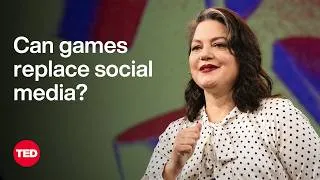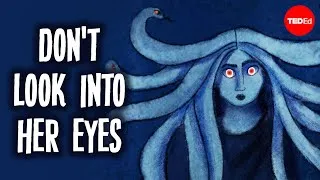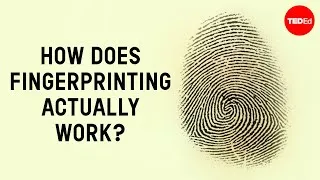Whatever happened to the hole in the ozone layer? - Stephanie Honchell Smith
606,604 views ・ 2023-04-18
请双击下面的英文字幕来播放视频。
翻译人员: Jenny Zhao
校对人员: Jacky He
00:07
In the 1980s, the world
faced a huge problem:
0
7420
3920
上世纪 80 年代,
我们世界面临一个巨大的问题:
00:11
there was a rapidly expanding hole
in the ozone layer.
1
11340
3212
臭氧层中有一个
正在迅速扩大的空洞。
00:14
So, what happened?
And is it still there?
2
14719
2586
所以,发生了什么事?
这个空洞还在吗?
00:17
Let’s go back to the beginning.
3
17889
1501
让我们先从头开始。
00:19
The Sun makes life on Earth possible,
4
19390
2211
太阳让地球上的生物能够存活,
00:21
but too much exposure to its UV radiation
damages plant and animal DNA.
5
21601
5213
但过量的紫外线辐射
会损害植物和动物的 DNA。
00:27
Thankfully, about 98% of that radiation
is absorbed by ozone molecules
6
27023
5589
值得庆幸的是,大约 98% 的
辐射被臭氧分子吸收
00:32
dispersed in the stratosphere,
7
32612
1668
分散在平流层;
00:34
which are continuously broken apart
and reformed in this process,
8
34405
3671
它们在此过程中
不断地分解和重造,
00:38
maintaining a delicate equilibrium.
9
38076
2210
保持着一个微妙的平衡。
00:40
But in the early 1970s, two chemists—
Mario Molina and Sherwood Rowland—
10
40578
5839
但在 1970 年代初期,两位化学家
——马里奥·莫利纳和舍伍德·罗兰——
00:46
demonstrated that widely used chemicals
called chlorofluorocarbons, or CFCs,
11
46417
5756
证实人们广泛使用的
一种化学物质氯氟烃或 CFC,
00:52
could upset this balance.
12
52173
1418
可能会打破这种平衡。
00:54
CFCs were developed in the 1920s
by three US-based corporations
13
54300
4463
CFC是在 1920 年代
由三个美国公司开发的
00:58
as coolants for refrigerators.
14
58763
1960
用于冰箱的冷却剂。
01:01
Unlike existing alternatives—
such as ammonia or methyl chloride—
15
61057
3879
不同于现有的替代品
—如氨或氯甲烷—
01:05
CFCs were non-flammable and non-toxic—
16
65144
2962
CFC 不易燃且无毒—
01:08
meaning they wouldn't burst into flames
or cause deadly gas leaks.
17
68106
3503
这意味着它不会起火
或导致致命的气体泄漏。
01:12
They also made great propellants,
foaming agents, and fire-retardants.
18
72110
4129
用它还可以制造很好的
推进剂,发泡剂和阻燃剂。
01:16
CFCs soon found their way into a variety
of everyday items
19
76656
4045
CFC 很快就被加入
各种日常用品中
01:20
and became a multi-billion dollar
per year industry.
20
80701
2962
并成为了一个年收益
数十亿美元的产业。
01:23
In the lower atmosphere, CFCs don’t
break down or react with other molecules.
21
83996
5047
在低层大气中,CFC 不会分解
或与其他分子发生反应。
01:29
But Molina and Rowland showed
that in the stratosphere,
22
89210
3170
但莫利纳和罗兰
表明了在平流层里,
01:32
they're broken apart by UV light,
releasing chlorine atoms.
23
92380
3545
它们被紫外线分解,
释放出氯原子,
01:36
These then react with ozone,
24
96175
1752
而其与臭氧发生反应,
01:37
destroying it faster
than it can be replenished.
25
97927
2461
将其消除,远超过臭氧再生的速率。
01:40
A single chlorine atom can destroy
thousands of ozone molecules
26
100429
4130
一个氯原子可以破坏
数千个臭氧分子,
01:44
before finally reacting with something
else and forming a stable molecule.
27
104559
4129
在最终与其他物质反应
并形成稳定的分子之前。
01:48
Seeing the threat to their bottom line,
28
108855
1876
看到对他们根基的威胁之后,
01:50
CFC producers pushed back
to discredit the scientists,
29
110731
3671
CFC 生产商开始诋毁科学家,
01:54
even accusing them of working for the KGB.
30
114402
2836
甚至指控他们为 KGB 工作。
01:57
Initial estimates showed
that within 60 years,
31
117864
3169
初步估计表明在 60 年内,
02:01
CFCs could reduce ozone
concentrations by 7%.
32
121033
3629
CFC 可使臭氧浓度降低 7%。
02:04
But by 1985, it became clear that ozone
depletion, especially over Antarctica,
33
124745
5423
但到了 1985 年,很明显
臭氧的消耗,尤其在南极上空的
02:10
was happening much faster.
34
130168
1793
发生得快很多。
02:12
Here, the extremely cold temperatures
and unique structure of Antarctic clouds
35
132128
4629
在这儿,极寒的温度
和独特的南极云层结构
02:16
accelerated ozone loss.
36
136757
1544
加速了臭氧的损失。
02:18
Scientists stationed in Antarctica
noticed a massive drop
37
138384
3337
驻扎在南极洲的科学家
注意到了每年春天
02:21
in overhead ozone occurring every spring.
38
141721
2711
上空臭氧的大幅下降。
02:24
Satellite data revealed the vast
extent of these losses
39
144432
3503
卫星数据揭露了这些
损失的具体程度,
02:27
and chemical tests confirmed
that the cause was unquestionably CFCs.
40
147935
5005
而化学测试证实,
无疑是 CFC 导致的。
02:33
NASA soon released visualizations,
which were broadcast around the world
41
153608
3712
美国国家航空航天局很快便发布了
视图,并在全世界播出
02:37
and captured public attention.
42
157320
1585
引起了公众的注意。
02:39
If ozone depletion continued,
rates of skin cancer would skyrocket.
43
159405
4213
如果臭氧消耗继续下去,
皮肤癌的发病率将会飙升。
02:43
Photosynthesis would be impaired,
making plants—
44
163868
2961
光合作用会受危害,使植物—
02:46
including rice, wheat, and corn—
45
166829
1835
包括大米,小麦和玉米—
02:48
less productive and more susceptible
to disease.
46
168664
2962
生产力降低,更容易染病。
02:52
Global agricultural production
would plummet,
47
172084
2711
全球农业产量将直线下降,
02:54
and entire ecosystems would collapse.
48
174795
2545
并且整个生态系统都会崩溃。
02:57
But many politicians— weighing immediate
economic concerns over long-term ones—
49
177340
5046
但许多政客,考虑眼前的
而非长期的经济问题,
03:02
disagreed about what to do.
50
182386
1710
在提出方案的时候出现了分歧。
03:04
The fight to ban CFCs found
two unlikely allies
51
184222
3169
禁止 CFC 的斗争中
形成了一对不寻常的盟友,
03:07
in US President Ronald Reagan
and UK Prime Minister Margaret Thatcher.
52
187391
4255
美国总统罗纳德·里根
和英国首相玛格丽特·撒切尔。
03:11
Despite their general opposition
to government regulation,
53
191896
2961
尽管他们反对政府管控,
03:14
Reagan, who had undergone treatment
for skin cancer,
54
194857
2753
因皮肤癌而接受治疗的里根,
03:17
and Thatcher,
who was trained as a chemist,
55
197610
2419
还有接受化学教育的
撒切尔夫人,
03:20
recognized the need for immediate action.
56
200112
2378
认识到了采取立刻行动的必要性。
03:23
The US and UK, along with Canada, Norway,
Sweden, and Finland,
57
203157
4296
美国和英国以及加拿大,
挪威,瑞典和芬兰,
03:27
led calls for an international
ban on CFCs.
58
207453
3128
带头呼吁国际上
禁用 CFC。
03:30
In 1987, representatives signed
the Montreal Protocol,
59
210790
3545
1987年,代表们签署了
《蒙特利尔议定书》,
03:34
requiring the rapid phasing out of CFCs
60
214335
2461
要求迅速淘汰 CFC,
03:36
and creating a fund to assist
Global South countries
61
216796
3003
并建立一项基金来
援助全球南方国家
03:39
in obtaining affordable,
non-ozone depleting alternatives.
62
219799
3295
以利用经济的,不损耗臭氧的替代品。
03:43
It was later ratified by every country
on Earth—
63
223427
2837
它后来由地球上全部国家批准—
03:46
the only treaty in history
to achieve this.
64
226264
2502
历史上唯一实现
这一目标的条约。
03:49
In 1995, Molina, Rowland,
and their Dutch colleague Paul Crutzen,
65
229392
4713
1995年,莫利纳,罗兰和
他们的荷兰同事保罗·克鲁岑,
03:54
were jointly awarded the Nobel Prize
in Chemistry.
66
234105
2752
共同获得了诺贝尔化学奖。
03:57
As the use of CFCs declined,
67
237233
2002
随着 CFC 的使用逐渐减少,
03:59
the ozone hole began shrinking,
68
239235
1793
臭氧空洞开始缩小了,
04:01
and is predicted to disappear
entirely by 2070.
69
241028
3295
预计到2070年将完全消失。
04:04
But we’re not out of the woods yet.
70
244824
1710
但我们还没有完全走出困境。
04:06
While the ban was a win for the climate,
as CFCs are potent greenhouse gases,
71
246534
4463
这个禁令对气候十分有利;
CFC 是强效温室气体,
04:10
the alternatives that replaced them—
hydrofluorocarbons, or HFCs— are too.
72
250997
5213
而取代它们的替代品,
氢氟碳化物,即 HFC 也是。
04:16
While generally less potent than CFCs,
73
256544
2294
虽然通常不及 CFC,
04:18
HFCs still trap more heat
than carbon dioxide
74
258838
3253
HFC 仍然较二氧化碳
留住更多的热量
04:22
and are contributing to climate change.
75
262091
1919
并且正在加剧气候变化。
04:24
To address this, in 2016,
the Kigali Amendment
76
264260
3295
为了解决这个问题,2016年,
基加利修正案
04:27
was added to the Montreal Protocol,
77
267555
1877
被加入了《蒙特利尔议定书》,
04:29
calling for an 85% cut
in global HFCs by 2047.
78
269432
4504
呼吁在 2047 年实现
全球 HFC 85% 的削减。
04:33
This alone could avoid up to 0.5°C of
global warming by the end of the century.
79
273936
5672
到本世纪末,仅此一项就可以
避免高达 0.5 ℃ 的全球变暖。
04:39
Today, as we face the existential threat
of climate change,
80
279984
3295
今天,当我们面临气候
变化的生存威胁时,
04:43
the Montreal Protocol serves as a model
for the decisive global cooperation
81
283279
3920
我们需要像《蒙特利尔议定书》这类
全球决定性合作典范
04:47
we need to combat it.
82
287199
1293
以对付它。
04:48
The question is, what will it take
for us to come together again?
83
288826
3420
那么问题来了;
什么会让我们再次团结起来?
New videos
Original video on YouTube.com
关于本网站
这个网站将向你介绍对学习英语有用的YouTube视频。你将看到来自世界各地的一流教师教授的英语课程。双击每个视频页面上显示的英文字幕,即可从那里播放视频。字幕会随着视频的播放而同步滚动。如果你有任何意见或要求,请使用此联系表与我们联系。







